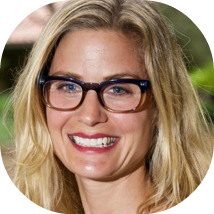|
List of Publications |
Kristen Alff has a degree in American and British literature from Boston University. After working for five years as a reading and writing instructor at Keio University in Tokyo, Japan, she travelled to Egypt where she entered the Master’s Program in Middle East Studies at American University in Cairo. At that time, her passion was focused on the Kurds in Iraq. Her master’s thesis examined the process of Kurdish identity- and community-formation. It combined Kurdish literature and British documents to analyze the ‘minoritization’ of the Kurds in Iraq from the late Ottoman through Iraq’s nominal independence in 1932. While in Egypt, Kristen also learned both Egyptian colloquial and Modern Standard Arabic, and continued her studies for five years at American Language Institute at AUC. Upon returning to the United States following eleven years abroad, Kristen took up teaching in history and the humanities on a secondary level, and eventually left to pursue her doctorate in Middle East History at Stanford University. Over the course of her four years at Stanford, Kristen’s interests have shifted to more political economic questions and business history. This shift was, in part, due to the new wave of interest in economic history since 2008. It was also inspired by the work of her primary advisor, Joel Beinin. More that this, however, this new passion came about through the discovery of unexamined archives of Levantine family corporations, whose members made their fortunes as participants in mid-nineteenth-century globalization. Kristen is currently beginning her fifth year in the history department and has just come back from one year in archives located in Beirut, Jerusalem, Marseille, Paris, Liverpool, London, and Istanbul. She is grateful to have received fellowships from PARC, CAORC, GRO-Stanford, and others in order to complete this ambitious research agenda. She is continuing to work hard to master at least a reading knowledge of Arabic, French, German, Hebrew, and Ottoman Turkish in order to be able to complete her anticipated project. Kristen still loves to teach and has received honors for her teaching at Stanford. In the future she hopes to continue to teach students through both classroom teaching and by eventually publishing her dissertation in article and book form. |
- Home
- Book1
- Workshops+
- Book Prize
- Pedagogy
- PEPBLOG
-
Summer Institute
-
Network
- Maha Abdelrahman
- Samer Abboud
- Ziad Abu-Rish
- Gilbert Achcar
- Max Ajl
- Anne Alexander
- Kristen Alff
- Paul Amar
- Habib Ayeb
- Charles Anderson
- Hannes Baumann
- Joel Beinin
- Brenna Bhandar
- Samia Al-Botmeh
- Firat Bozcali
- Melani Cammett
- Joseph Daher
- Omar Dahi
- Tariq Dana
- Firat Demir
- Kaveh Ehsani
- AbdelAziz EzzelArab
- Leila Farsakh
- Wael Gamal
- Mélisande Genat
- Bassam Haddad
- Adam Hanieh
- Toufic Haddad
- Vladimir Hamed-Troyansky
- Shir Hever
- Jamil Hilal
- Raymond Hinnebusch
- Firas Jaber
- Aaron Jakes
- Toby Jones
- Arang Keshavarzian
- Raja Khalidi
- Laleh Khalili
- Paul Kohlbry
- Darryl Li
- Zachary Lockman
- Miriam Lowi
- Rabab El Mahdi
- Pete Moore
- Roger Owen
- Nicola Pratt
- Kareem Rabie
- Sahar Taghdisi Rad
- Iyad Riyahi
- Roberto Roccu
- Sara Roy
- Omar Jabary Salamanca
- Sobhi Samour
- Sherene Seikaly
- Omar AlShehabi
- Linda Tabar
- Alaa Tartir
- Mandy Turner
- Shana Marshall
- Ahmad Shokr
- John Warner
- Emrah Yildiz
- Sami Zemni
- Rafeef Ziadah
- Kiren Chaudhry
- Basma Fahoum
- Kevan Harris
- Jamie Allinson
- Johan Mathew
- About
- Summer Institute (Internal)
- Applications


